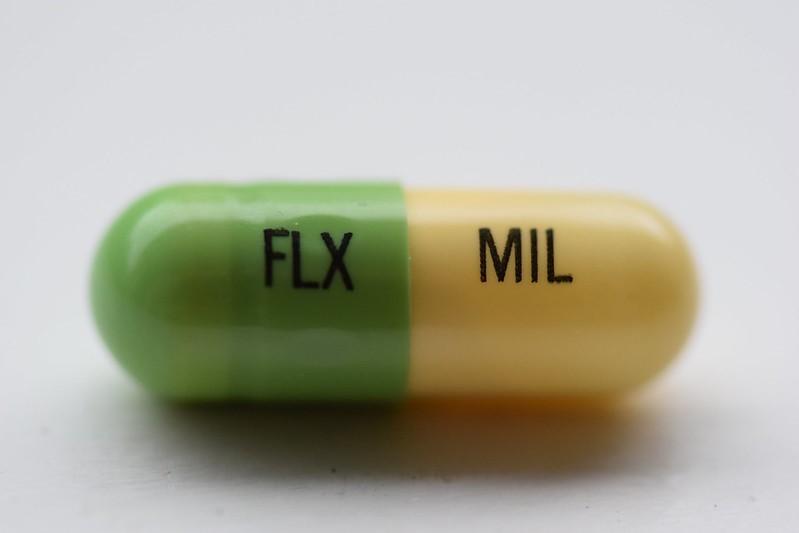New research published in BMC Medicine suggests that using antidepressants (ADs), especially selective serotonin reuptake inhibitors (SSRIs), could help prevent COVID-19 infection.
The study was based on infection trends seen among 5,664 patients admitted for mental health care at South London and Maudsley NHS Foundation Trust sites during the first wave of the COVID-19 pandemic (April to December 2020).
Researchers from King’s College London looked at the COVID-19 test results of all inpatients routinely tested upon admission and found that 202 of the 5,664 patients (3.6%) were positive for COVID-19.
Mental health patients with a recent (previous 90 days) prescription for an SSRI had an almost 40% reduction in the likelihood of a positive COVID-19 test.
Fifty-one percent of the patients admitted were seeking help for schizophrenia or delusional psychotic disorders, and 21.6% were seeking treatment for mood disorders. More than half of the patients were between ages 18 to 29, and 58.9% were non-White.
A total of 1,020 (18.0%) had an SSRI prescribed within 90 days of inpatient admission.
In total, 27.7% percent of COVID-19–negative patients had at least one antidepressant prescription mention within 90 days preceding admission, compared to 16.8% of COVID-19–positive patients.
Early timeframe limits confounding effects of herd immunity
"The results of this study indicate that prior receipt of ADs and specifically SSRIs in community-dwelling mental health outpatients was associated with a decreased likelihood of COVID-19 incidence," the authors concluded. "The focus on the 1st wave of COVID-19 avoids the confounding effects of the 'herd immunity' in the population due to mass vaccination and/or previous exposure to COVID-19 in the following time period."
SSRIs, including fluvoxamine (Luvox) and fluoxetine (Prozac), have been studied by various groups during the pandemic, with mixed results in regards to protection against or treatment for the virus.
The study follows at least two studies that showed that mental health patients with psychotropic drug use have been less likely to report COVID-19 infections than peers. Other major trials have showed that fluvoxamine was ineffective in preventing severe COVID-19 illness.
Our previous work shows that antidepressants may target the cell biology processes of COVID-19 infection, and the results of this study hint at the potential clinical benefit of this effect.
But study authors said their findings show that SSRIs have medical uses beyond treating anxiety and depression.
"Our previous work shows that antidepressants may target the cell biology processes of COVID-19 infection, and the results of this study hint at the potential clinical benefit of this effect," said lead author Oleg Glebov, PhD, of King’s College London in a press release.
Glebov said that though mass vaccination has helped limit the spread of the virus, there are many people for whom vaccination is insufficient, including those with weakened immune systems.
For those people, "Cheap, well-characterised and readily available drugs such as antidepressants may help in curbing the spread of COVID-19. If our findings hold up in further investigation, it may provide some help for those left behind by the currently available strategies for COVID-19 prevention. "




















